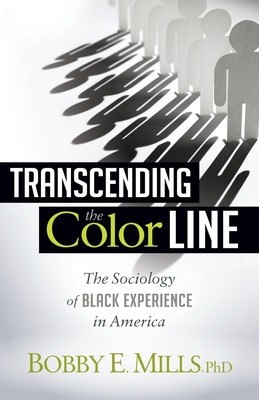
- We will send in 10–14 business days.
- Author: Bobby E Mlls
- Publisher: Morgan James Publishing
- ISBN-10: 1630473162
- ISBN-13: 9781630473167
- Format: 14 x 21.6 x 1.1 cm, softcover
- Language: English
- SAVE -10% with code: EXTRA
Reviews
Description
Transcending the Color Line, by sociologist and professor Bobby E. Mills, PhD, represents a philosophical attempt to make sense out of American black collective experience. This collection of essays does not reflect traditional sociological perspectives and methodological considerations. Instead, the query is: How do we live? More importantly, what are we willing to sacrifice in order to live the way we say we want to live? In other words, these essays dig deeper to the moral and spiritual issues that lie beneath the more obvious sociological ones.
Invariably the search for moral understanding and spiritual meaning is neither easy nor popular. Yet it is the abstract, empirical (amoral and apolitical) character of traditional sociology that has all but rendered it irrelevant to the resolution of contemporary social ills. The biased theoretical assumptions of the scientific method (i.e., abstract empiricism) are the social basis for the collective bias otherwise known as the illusion of value neutrality. This collective cultural bias is the social foundation for institutional racism, sexism, theological dogmatism (i.e., denominationalism), and above all, authoritarianism. Indeed, every "ism" is a schism, and schisms divide. Our either/or logic fosters cultural extremism rather than a universal perspective on humanity.
By digging deep to the true source of our sociological and leadership issues, these essays not only call black and white individuals accountable to the dysfunction present in our shared social experience, but inspire all people to transcend the color line and become part of the solution.
- Author: Bobby E Mlls
- Publisher: Morgan James Publishing
- ISBN-10: 1630473162
- ISBN-13: 9781630473167
- Format: 14 x 21.6 x 1.1 cm, softcover
- Language: English English
Transcending the Color Line, by sociologist and professor Bobby E. Mills, PhD, represents a philosophical attempt to make sense out of American black collective experience. This collection of essays does not reflect traditional sociological perspectives and methodological considerations. Instead, the query is: How do we live? More importantly, what are we willing to sacrifice in order to live the way we say we want to live? In other words, these essays dig deeper to the moral and spiritual issues that lie beneath the more obvious sociological ones.
Invariably the search for moral understanding and spiritual meaning is neither easy nor popular. Yet it is the abstract, empirical (amoral and apolitical) character of traditional sociology that has all but rendered it irrelevant to the resolution of contemporary social ills. The biased theoretical assumptions of the scientific method (i.e., abstract empiricism) are the social basis for the collective bias otherwise known as the illusion of value neutrality. This collective cultural bias is the social foundation for institutional racism, sexism, theological dogmatism (i.e., denominationalism), and above all, authoritarianism. Indeed, every "ism" is a schism, and schisms divide. Our either/or logic fosters cultural extremism rather than a universal perspective on humanity.
By digging deep to the true source of our sociological and leadership issues, these essays not only call black and white individuals accountable to the dysfunction present in our shared social experience, but inspire all people to transcend the color line and become part of the solution.


Reviews